Dr. Crystal Hurd on the Implications of a Female Aslan
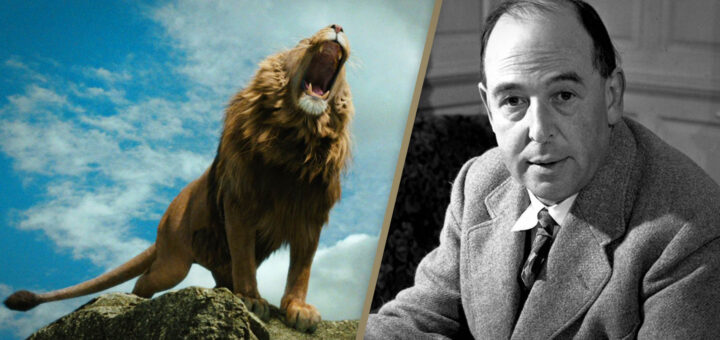
The recent Aslan casting rumor has sparked lots of discussion around the NarniaWeb community for the past several weeks. We reached out to several C.S. Lewis scholars and asked them for their perspective on the issue, and Dr. Crystal Hurd kindly agreed.

Dr. Crystal Hurd is an educator, poet, and researcher from Virginia. Her doctoral research focused on C. S. Lewis as a Transformational Leader. She previously served as Reviews Editor for Sehnsucht: The C. S. Lewis Journal. Her articles have appeared in SEVEN, Christian History Magazine, Inklings Forever, Perichoresis, and The Faithful Imagination.
She contributed a chapter on Flora Lewis for the book Women and C. S. Lewis: What His Life and Literature Reveal for Today’s Culture (2015). She is also the author of Thirty Days with C. S. Lewis: A Women’s Devotional (2014) as well as The Leadership of C. S. Lewis: Ten Traits to Encourage Change and Growth (2022). She is currently conducting research on the spiritual and artistic influence of the Lewis and Hamilton families titled Bookish, Clever People. For this project, she was awarded the 2020 Clyde S. Kilby Research Grant by the Marion E. Wade Center at Wheaton College. She serves as a Visiting Professor for Northwind Seminary’s Doctorate in Theology and Ministry for Inkling Studies and Romantic Theology.
In 2025, she launched the YouTube channel, That Lewis Lady.
Opinion by Dr. Crystal Hurd
With the recent news that award-winning actress Meryl Streep was being considered for the role of Aslan in the new Netflix series, I felt two very conflicting emotions: one, that a female Aslan would work very well for The Magician’s Nephew and two, continuity with Streep as the voice would cause some inconsistencies (not to mention controversy) in the character. Here, I want to investigate both positive and negative impacts if Gerwig decides to cast Streep as Aslan’s voice.
Positive Aspects
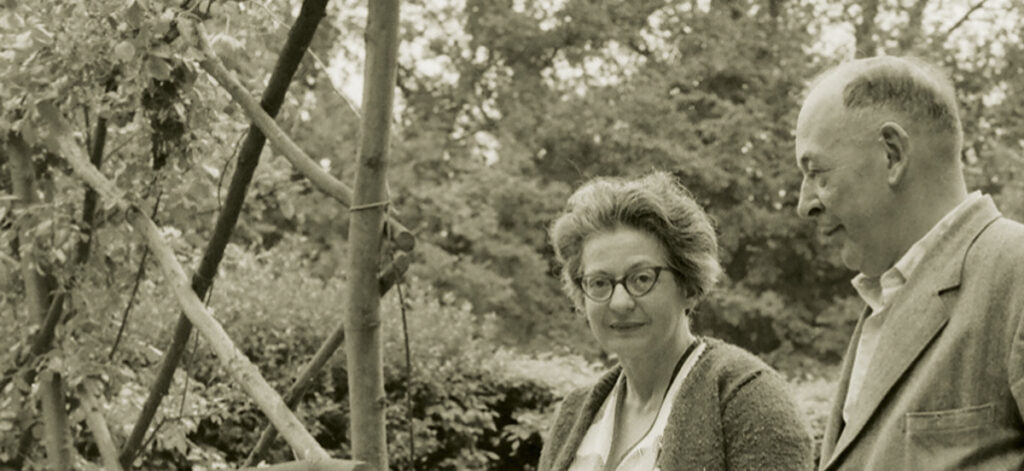
One important aspect to remember is that the Chronicles of Narnia, although deeply beloved, is at root a fantasy story.
Lewis mentions this fact in the preface of another book The Great Divorce, so people would not react hastily as they did with The Screwtape Letters (readers accused him of sympathizing with the devil). At the end of the day, this is make-believe, not a bible tale. It cannot be held to the same standard as catechism. Unbridled imagination is what led Lewis to write the series in the first place, and Lewis admits that he did not set out to write an overtly Christian tale:
“Some people seem to think that I began by asking myself how I could say something about Christianity to children; then fixed on the fairy tale as an instrument; then collected information about child-psychology and decided what age-group I’d write for; then drew up a list of basic Christian truths and hammered out ‘allegories’ to embody them. This is all pure moonshine. I couldn’t write in that way at all. Everything began with images; a faun carrying an umbrella, a queen on a sledge, a magnificent lion. At first there wasn’t even anything Christian about them; that element pushed itself in of its own accord”
Sometimes Fairy Stories Say May Best What’s to be Said, 46
There are other female characters that shine in the series (Lucy, Susan, Polly, Jill, Aravis), but particularly in The Magician’s Nephew. Perhaps one of the most interesting facets of the story is that the eventual queen of Narnia, a working-class woman plucked from obscurity, is based upon Lewis’s wife. Queen Helen is directly inspired by Helen Joy Davidman Lewis, the poet and former communist who came to faith through Lewis’s writings. It is a fictional redemption of the woman who drew much criticism in her own life but who is now immortalized as a queen in a children’s fantasy story for generations.
The Magician’s Nephew chronicles Aslan singing Narnia into existence, delegating duties to varied characters, and giving Digory the instructions needed to retrieve the apple that will heal his mother. It is no stretch of imagination to consider a female character “birthing” one of the worlds or nursing a sick person back to health. Lucy’s gift from Father Christmas, the cordial that restores health, is an echo of this action.
These are, in fact, very “feminine” qualities according to convention. Both Egyptian and Hindu mythology feature lionesses as symbols of power, community, and fertility. In ancient mythologies, this is nothing novel or extraordinary.
Similarly, contemporary fantasy features a menagerie of strong, fierce female characters who have built a following on their own popularity. Perhaps this is why the Netflix series is reconsidering Aslan’s voice as a female, to align with this trend. Think of women fantasy writers who continue to dominate the best-seller lists (this week): Sarah J. Maas, Rebecca Yarros, Carissa Broadbent, and Callie Hart to name a few. Their female protagonists are witty and wise. Recent publication data shows an exponential increase in women reading fantasy and romantasy (romantic fantasy).
Now more than ever, women are reading fantasy and hoping for more depictions in the media that they consume. Installing more females in the story could attract more girls and women to watch the series.
Negative Aspects
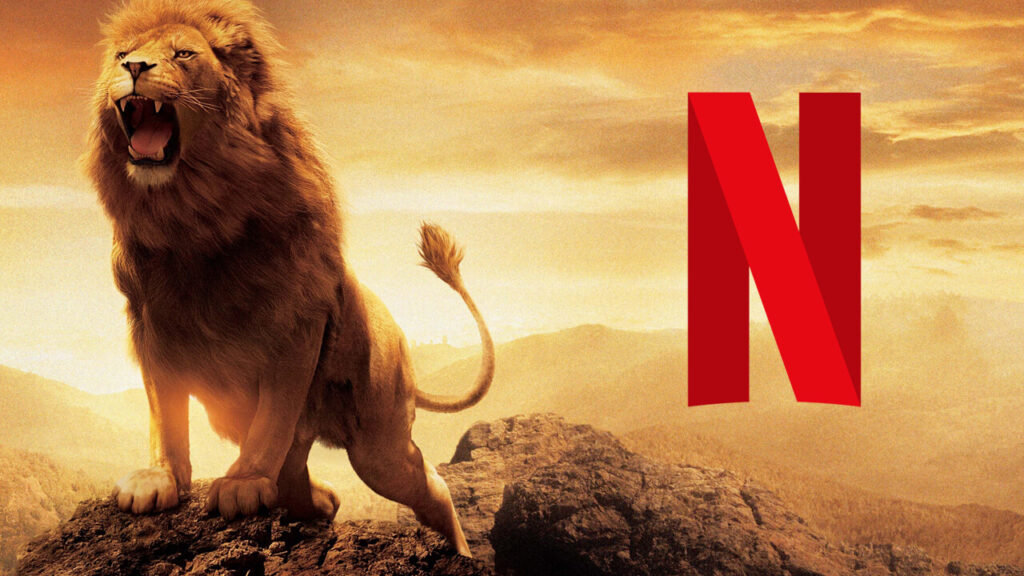
However, the issue lies with series continuity. Does Gerwig intend to film all seven books? If so, this would present problems for many fans. For example, while The Chronicles of Narnia isn’t strictly allegorical, C. S. Lewis mentioned in his correspondence that Aslan is influenced by Jesus, not a direct one-to-one comparison, but a “supposition.”
For spiritual fans who interpret Aslan as a Jesus figure, this change would present theological inconsistencies. A female would be sacrificed on the stone table, while other female characters are not directly involved in physical violence or combat.
For fans with no religious preconceptions, this change wouldn’t matter, but those who have already established Aslan as a Christ figure would certainly be upset. These associations cannot be untangled now. One cannot alter religious representation and not anticipate some negative feedback. This tramples into the territory of irreverence for many moviegoers (versus a hero with no religious affiliation).
Creatively, changing gender (or any fundamental aspect) of a character is irritating to audiences who have already established a particular voice or personality. We have all experienced this when an actor/actress leaves a show or passes away.
Many women, myself included, want to see more representation on screen in legitimate roles as main characters, not males recast as females (a la Marvel). As a comics fan, I prefer Wonder Woman to Captain Marvel; Wonder Woman possesses her own origin story, her own talents, skills, and foibles. She is well-rounded and equally as principled and developed as her male counterparts.
Personally, it is hard for me to fathom anyone other than Liam Neeson doing Aslan’s voice because I have come to enjoy his interpretation of the character. I adored The Lion, The Witch, and The Wardrobe twenty years ago. I wept when Aslan was sacrificed at the Stone Table. There is a part of me that will always cherish that film and Neeson’s specific interpretation, even as time and directors make changes.
While I am a firm believer that good art is subject to interpretation, I also found myself wondering what Lewis would have thought. I have spent the last eleven years researching and writing about Lewis’s early life and family. Why did he choose a lion?
Most likely, he selected a lion because his youth and adulthood were filled with images of lions. Lewis was born and raised in the sectarian conflict of Belfast, Northern Ireland. His maternal grandfather, Reverend Thomas Hamilton, was an Anglican minister at St. Mark’s Dundela. The symbol of St. Mark is a winged lion. In fact, the door to the rectory featured a bronze doorknob bearing the head of a lion. Every time a young Lewis attended church or visited his grandparents, he was surrounded by images of proud lions.
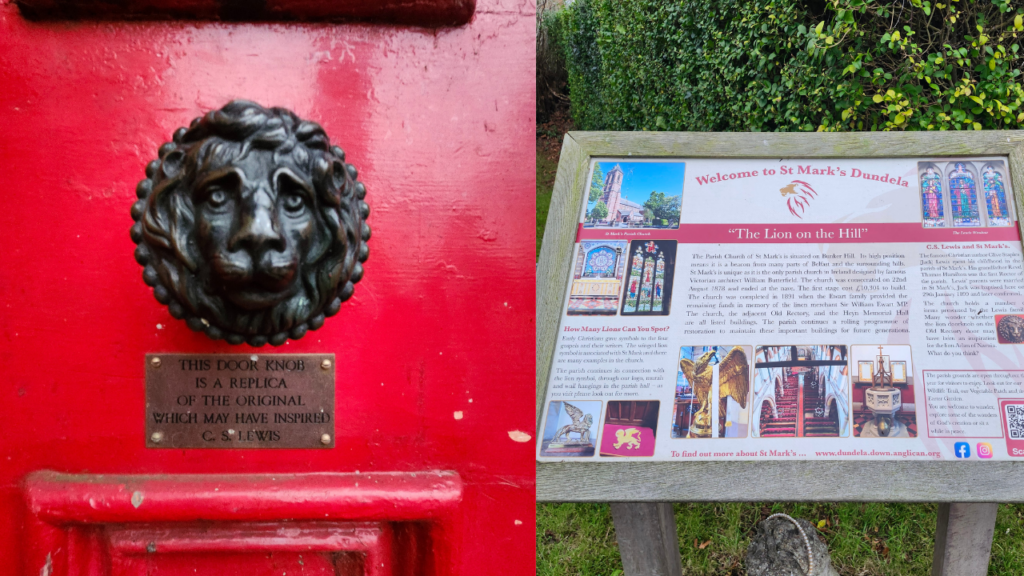
In his maternal ancestry, Lewis is descended from the Scottish king Robert the Bruce (Robert I). The Lion Rampant (a red lion on its back paws featured on a yellow background) was established as the royal standard of Scotland. It served as the banner for the King of Scotland for centuries. Robert led the first war against England for Scottish independence between 1310 and 1314; he is remembered with great fondness in Scottish history. On Robert’s tomb in Dunfermline Abbey is an image of the mighty king with a lion poised at his feet.
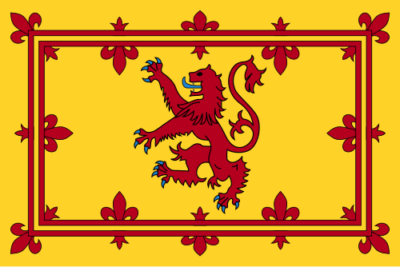
Similarly, Lewis’s father—police court solicitor Albert Lewis—was an early proponent of Home Rule, the idea that Northern Ireland should remain loyal to English control. The male lion is the longstanding symbol of the English monarchy.
Later in his life, Lewis argued—quite apologetically—that leaders in the church should be male. Lewis was, in no way, a misogynist in his values but more of a traditionalist. His own mother Flora was a brilliant mathematician who attended two different universities, earning top honors. Her gender denied her a degree, but C. S. Lewis always admired his mother for her wisdom, wit, and intelligence despite her short life. Historians call her a “pioneer” of early co-education. For Lewis, it was not a lack of respect for women, but the use of a widely-popular historical symbol that young children would recognize.
Final Words
A final consideration: what would be the point of gender-swapping Aslan? Would it benefit the story or is it simply an experimental move to reimagine the character? I agree with Lewis in his essay “On Stories”:
“It is astonishing how little attention critics have paid to Story considered in itself. Granted the story, the style in which it should be told, the order in which it should be disposed, and (above all) the delineation of the characters, have been abundantly discussed. But the Story itself, the series of imagined events, is nearly always passed over in silence, or else treated exclusively as affording opportunities for the delineation of character”
Sometimes Fairy Stories Say May Best What’s to be Said, 3
Ultimately, Lewis argues that Story is paramount. This is what the audience expects (and paid for), not a sermon or lecture. Although it can provide instruction, the primary purpose of Story is entertainment. When changes remove the essential magic from a story, it leaves the audience hollow and unsatisfied. Lewis continues, in the same essay, about this very same phenomenon:
“I was once taken to see a film version of King Solomon’s Mines. Of its many sins–not least the introduction of a totally irrelevant young woman in shorts who accompanied the three adventurers wherever they went–only one here concerns us. At the end of Haggard’s book, as everyone remembers, the heroes are awaiting death entombed in a rock chamber and surrounded by the mummified kings of that land.
The maker of the film version, however, apparently thought this tame. He substituted a subterranean volcanic eruption, and then went one better by adding an earthquake. Perhaps we should not blame him. Perhaps the scene in the original was not ‘cinematic’ and the man was right, by the canons of his own art, in altering it.
But it would have been better not to have chosen in the first place a story which could be adapted to the screen only by being ruined. Ruined, at least, for me.
No doubt if sheer excitement is all you want from a story, and if increase of dangers increases excitement, then a rapidly changing series of two risks (that of being burned alive and that of being crushed to bits) would be better than the single prolonged danger of starving to death in a cave. But that is just the point.
There must be a pleasure in such stories distinct from mere excitement or I should not feel that I had been cheated in being given the earthquake instead of Haggard’s actual scene.
What I lose is the whole sense of the deathly (quite a different thing from simple danger of death)–the cold, the silence, and the surrounding faces of the ancient, the crowned and sceptred, dead. You may, if you please, say that Rider Haggard’s effect is quite as ‘crude’ or ‘vulgar’ or ‘sensational’ as that which the film substituted for it.”
Sometimes Fairy Stories Say May Best What’s to be Said, 5-6 (emphasis added)
Lewis expected a certain fidelity with the original story or the adaptation is, in essence, “ruined.” No matter what age, what culture, what generation experiences the story, there is an anticipation that certain facets will be preserved. This can be tricky, as these aspects will vary for different individuals. Does a cinematic change “ruin” the story or does the change serve the story well? This is what we should be asking ourselves. Characters are at the heart of every story, and Narnia is no exception.
Adapting a beloved story is a difficult task; Gerwig certainly has her hands full. But our love of story perseveres, and we must try (and try and try) to revisit those stories we love, to reinvent them without disturbing the magic within. Lewis himself said it best, “Art, indeed, may be expected to do what life cannot do: but so it has done…But I think it is sometimes done–or very, very nearly done–in stories. I believe the effort to be well worth making” (“On Stories” 19).
Related:

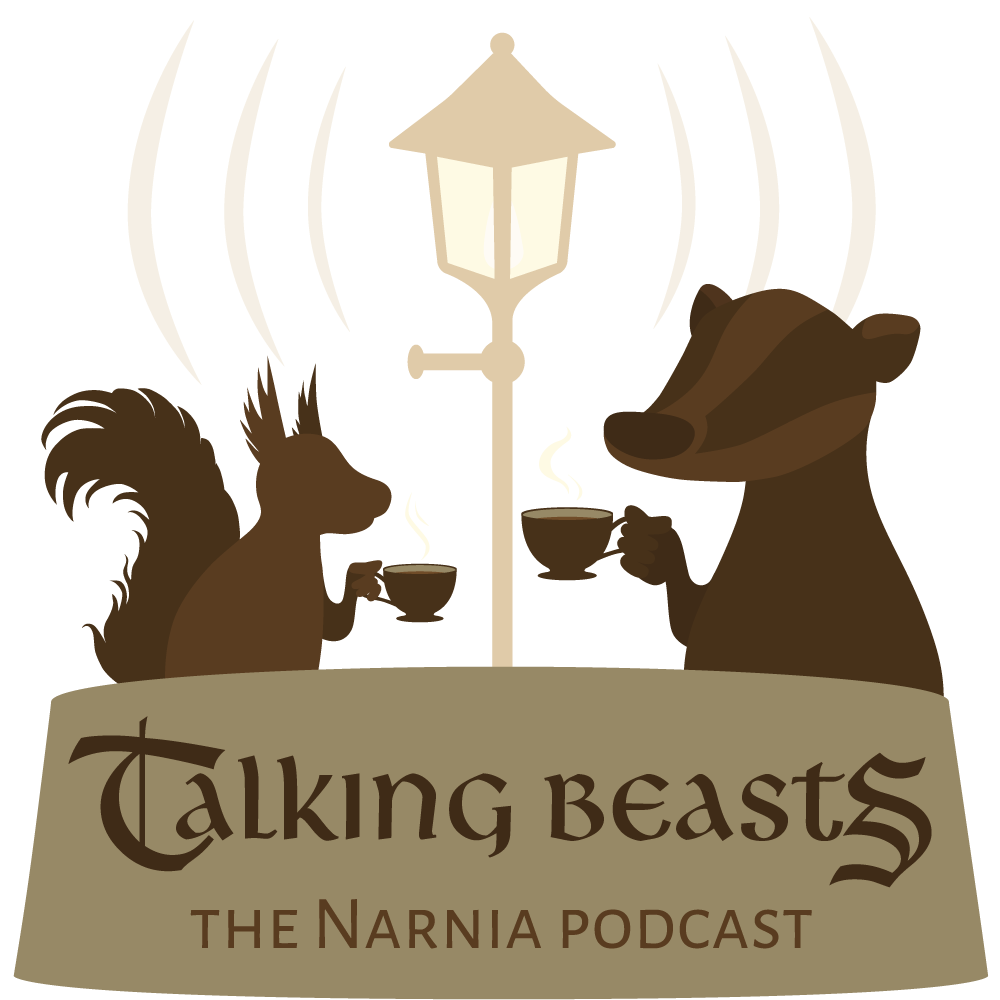
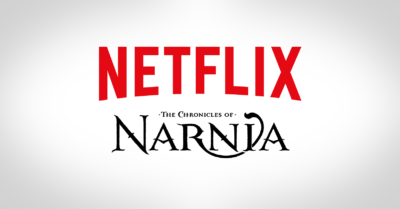



An excellent, thoughtful essay. Dr. Hurd is the kind of scholar who neither succumbs to ideology nor shuns questions of contemporary relevance. A note worth adding: Lewis made much of details in a story–to change even small ones bothers children to no end. If the story isn’t consistent with its inner facts, it violates the world building imagination in young audiences.
Just ,”no”.
I enjoyed that… it’s got me thinking. Thanks for sharing, @ImpendingDoom.
This was a thought-provoking read, I must say. But I’m pretty sure most Narnia fans would agree that Aslan as a male is a pretty intrinsic detail to the story.
On a side note, I didn’t know Lewis was a Robert Bruce descendant! I believe William Moseley (aka Peter the Magnificent) also shares in that lineage. Quite fitting. (And I actually have the lion rampant flag hanging in my room right now!) I wonder if that had some connection to Lewis’ description of the Narnia flag as having a red lion rampant as its emblem.
In the Last Battle, Lewis makes it explicitly clear that Aslan IS Jesus by another name in another world. It’s not ambiguous. Gerwig’s gross misunderstanding of the source material ought to disqualify her from the job out of the gate.
It’s one thing to change a character which, even putting the allegory aside, is clearly very much a male character.
It’s quite another thing, to have a female voice a lion that has to have a mane, or else it DRAMATICALLY changes details that are absolutely intrinsic to the character.
Lions with manes are males.
Aslan MUST have a mane, or else it’s not Aslan. Therefore you cannot have a female voice a lion with a mane… It simply makes no sense.
There is no possible artistic reason for it, the ONLY reason to do it is, is to intentionally mar the image that those of us who have read and loved the books have in our heads.
There simply is no good reason, artistic or otherwise, to make such a change.
If they do, then it tells me that the reason for making the change, and likely the movie, isn’t to make art, but rather, to besmirch the original art, as has been done to so many other beloved books and stories lately.
If she continues this irreverence, it will surely outrage fans, be boycotted by same. And bomb at the box office. Just ask Disney about trifling with classics!
It’s nice to see a nuanced and balanced take on the debate coming from a prominent Lewis scholar – it’s also nice to see that she supports the idea that Aslan should be a male Lion.
More importantly though, given how much outrage and controversy this story has generated on the internet – it’s just nice that the Narnia fandom can demonstrate that it is one of the most intelligent and considered fanbases on the internet by engaging in thought-provoking debate, rather than just vitriol and anger.
Good article. But no-one seems to reflect on the fact that Aslan is portrayed as the King of the BEASTS. The Narnia stories are not just about humans, and not in essence about Jesus either (though there is a deliberate alignment). Aslan creates a world for the beasts, and creates talking beasts, as the King of the Beasts. Let’s just once honour the imagination of an author and leave well enough alone.
The problem is the mane. As a kid I considered it basically its own character, imbued with magic and will of its own. It gets shaved to weaken the lion. It comforts. It intimidates. It’s half of Aslan: the other half being the voice / maw.
I’d say this is quite a balanced and thoughtful look at the whole issue, but this claim from Dr Hurd is a bit disconcertingly inaccurate:
“For example, while The Chronicles of Narnia isn’t strictly allegorical, C. S. Lewis mentioned in his correspondence that Aslan is influenced by Jesus, not a direct one-to-one comparison, but a “supposition.”
She’s spot on about the books not being strictly allegorical, but the rest is off the mark. It’s not true that Lewis “mentioned in his correspondence that Aslan is influenced by Jesus, not a direct one-to-one comparison, but a ‘supposition’.”
Lewis made blatantly clear — in the books themselves (implicitly) and in numerous letters and articles (explicitly) — that Aslan IS intended to be Jesus. He is indeed a “supposition” in the sense that he is an imagined answer to the question of what Jesus might be like if he came into another world in a different form. But that’s far more than the character merely being “influenced” by Jesus. Whether or not someone personally comes from a Christian background, this surely shouldn’t be difficult to understand.
I’m also a bit baffled by Dr Hurd’s assertion that Queen Helen in The Magician’s Nephew is “directly inspired by Helen Joy Davidman Lewis”. Apart from being female and sharing the same first name, there’s no resemblance I can see between the two. Joy (as she was known) was, from all I can gather, an incredibly tough and feisty and brilliantly intelligent woman who came to faith in Christ as an adult, in the midst of personal crisis (particularly a failing first marriage), and found romantic love in the form of “Jack” Lewis himself even as she battled terminal illness, dying after four deeply happy years of marriage to Jack.
Queen Helen of Narnia, on the other hand… we simply do not know enough about her to make proper comparisons with anyone in real life. She barely plays any role in the story at all — certainly doesn’t make any active contribution to the plot, and I think only gets one or two lines of dialogue. She just comes across as a sweet young working-class woman who’s suddenly plucked from her laundry and brought into Narnia by Aslan, whom she seems to recognise at once for who he is. (Unlike Dr Hurd, slightly ironically.) Seriously — apart from the given name, there is absolutely nothing that suggests a connection with the real-life Helen Joy Davidman Lewis.
There are some good points in this article, but those two glaring misconceptions rather spoil it for me, I’m afraid, because they indicate that the author doesn’t have a very firm grasp of what she’s talking about. Quite disappointing.
I’ll be direct and brief. It is a BIG DEAL that Aslan is male. It would be a travesty to present a female Aslan to the public. I try to read something from the Chronicles of Narnia every year. While I will continue to do that, I will simply have to forego the new film.
Was there a point in all of this? I’m still tyring to find an opinion.
I agree with Icarus that it’s wonderfully refreshing that we can talk about this in a thoughtful and civil way! I think it says a lot about the way the books have influenced us. My son turned 7 this year and I was so incredibly excited to start the journey of Narnia with him! And the journey did not disappoint. Unfortunately though if Aslan is a female I won’t be taking him. As that article accurately states, as a Christian who has already shown him the parallel between Aslan and Jesus, I wont confuse him in that way. I truly hope they change their mind on this one!
The mere fact that there were “positive aspects” to Meryl voicing Aslan in her opinion of the Doctor made me stop reading immediately.
Honestly, the claims that ‘Greta doesn’t understand Aslan’ is so weird.
Like we’ve had closer retellings of Narnia in film format. I’m excited to see her adapt this to a modern audience, new themes and her own takes.
Fiction and storytelling in general should be adjustable.
Her reimagining Narnia doesn’t discredit the fact that the original work exists, people will always revisit it, we shouldn’t fear different or new perspectives.
A beautiful well- written article with strong research. Thank you for writing an essay that exemplifies the kind of generous approach we might take in thinking about the art and the story.
If a female voice is cast for Aslan, it won’t end well and no more will be made.
Trying to justify this as anything other than blatant disrespect and subversion of a classic christian tale is revolting. If the guy isn’t even alive to debate changes, don’t make changes. Absolutely vile. I want Narnia. Whats wrong with making something timeless? Why can’t filmmakers make art instead of political messages?
I had never read that quote from Lewis describing his disappointment with the film version of the story King Solomon’s Mines. I always thought he would have despised the latest film versions of his Narnia stories. Now I am convinced of that.
An insult to C.S. Lewis, his beliefs, his theology, his art. Christians should boycott this film series. Has no one learned the lessons of Peter Jackson’s success with Lord of the Rings?
I’m sympathetic to fans who are expecting a male lion and understand it to be a parallel to Jesus. I’m not as sympathetic to those of religious persuasion who are offended because they believe God to be male and that males have some sort of spiritual significance in the godhead. The ‘male’ God of the bible is contextual. It was an incredibly patriarchal time. People wrote ‘he’ because that’s what they understood of power. Despite that, there are many references to God’s feminine qualities in the scriptures. And the Holy Spirit had feminine descriptors in the original biblical language. God, in grace, sent a male Jesus to earth. People would have stoned a female incarnate God straight away, the moment she opened her mouth to start her ministry. Some people’s attitudes are still the same these days, unfortunately! If God decides to visit another world in the form of a lion then why not a female lion? If Greta decides this time it is a female lion it may disappoint fans of Narnia but shouldn’t offend Christians as a point of theology.
A female Aslan wouldn’t fit. It would literally change the stories. I also want to see a Narnia like in the books! If they want to change the lion to a female, it will no longer be the original Chronicals of Narnia. If someone wants a female Aslan, they need to write their own story/book first. For example, Stephanie Meyer wrote a backwards story for our favorite Twilight Characters. As the human was male, there couldn’t be any children born, so the story becomes just one book. If someone wants to change a world, let them write their own book, first.
A female Aslan wouldn’t fit. It would literally change the stories. I also want to see a Narnia like in the books! If they want to change the lion to a female, it will no longer be Narnia. If someone wants a female Aslan, they need to write their own books first. For exampke, Stephanie Meyer wrote a backwards story for our favorite Twilight Characters. As the human was male, there couldn’t be any children born, so the story becomes just one book. If someone wants to change a world, let them write their own book, first. Then they could make their own movie of it.
As other comnenters have mentioned, besides the part of the King of beasts being male, the lion’s mane becomes a huge part of the story. Female lion’s do not have manes. Like I mentioned earlier, if they want a female Aslan, they need to present it as a completely different story. To me, the best movies stay true to the source material.
Unlike this ‘scholar’ I was alive when Lewis wrote it. JRR Tolkien converted Lewis to Christianity. While at the Dirty Duck pub in Oxford, the two made a bet about who could write the best fantasy that would bring people to Jesus.
Tolkien wrote ‘Lord of the Rings’ and Lewis wrote ‘Chronicles of Narnia’.
Gerwig wrote the disasteroius Snow White and look how that bombed.
What is this rewriting classics for ‘modern audiences’ anyway? Seems like it is an excuse to nerite new stories but do a cash grab by proclaiming them classics. Ridiculous as is this let me give her credentials first so you will all believe her view is correct.
All hat and no cattle here.
Your article is very well-thought out and I appreciate it. I will say I’m tired of male leads being replaced with females. Actually, I’m tired of remakes. Instead of gender swapping the lead, why don’t they write new movies?
As far as Aslan, I have a strong aversion to a female playing him. He is an allegory for Jesus. Lewis most likely chose the lion to be Aslan, not because he frequently saw lions. It was because Jesus is called the Lion of Judah.
Bro, what is this girl even on about? Is this a joke, or just pure cope from NarniaWeb?
@Joe, Lewis disagreed with you, strongly, on precisely that point—that God’s masculinity was purely contextual and therefore malleable—and so do most of Narnia’s most ardent fans. You may have strong feelings about that, but the Aslan character *is* deeply rooted in those beliefs. So unfortunately, that’s that, whatever our modern (contextual and malleable) sensibilities may be.
What’s going on with your comments, @PhelanVelvel, @Lynn Atkinson, and @EmanuelBV?
An author who has written multiple books on C.S. Lewis offers one (!) possible positive angle on a female portrayal of Aslan—within an essay that clearly outlines all the obvious concerns as well—and your response is to dismiss and belittle her?
If you can’t handle even the *slightest* bit of nuance in a conversation—especially when the person ultimately agrees with your conclusion… that says a lot.
This kind of “mob mentality” where people must believe exactly what you believe, in the exact way you believe it has no place in honest discussion, especially so in Narnia fandom. Please critique the argument all you want, but maybe start by engaging with it instead of throwing insults.
Thanks for coming to my TED Talk.
I just think we need to say it’s just bad nothing positive about this “casting” if true. My only concern “if” this is what they think of Narnia what’s the out come?
@Luke Sechrist
I mean this as a genuine question, why should “we” say there’s nothing positive about this rumor if people think there’s a positive aspect to it? I’m also asking this as someone who will likely hate the idea of a female Aslan.
Don’t we want people to share their honest opinion, participate in the fandom, and not fear the monolith opinion? I think that’s what makes discussions fun 🙂
Female lions don’t have manes and idk why this world thinks it needs to replace all male stories with women lol
Aslan is a male. And as much as you want to reimagine the story, you are only going to end up destroying the story if you change his gender. Lewis might not have started out making a Christian story, but that is what it turned into. Aslan literally charges the children to look for him back in their own world and sais that in their world, he is known by another name. This was the entire reason the children were brought to Narnia in the first place, that by knowing Aslan a little here, that they may know him better in their own world. For a Dr. who has made it her career to study CS Lewis and his works, you’d think she’d know this. Now imagine if a female lioness said this to the children. By changing the gender of Aslan, they have to change essential parts of the story and make it unrecognizable to make it make sense. Aslan’s name will probably have to be changes if you change his gender. Then you have to take out the idea that Aslan is the king of of the whole wood and son of the emperors beyond the sea. You have to basically rob Aslan of his very identity ad replace it with another identity that no matter how you look at it, will lack in meaning and ultimately drastically change the story to the point it won’t be worth watching. And for what? To be more inclusive? Every single book has a central female main character already. There is always a boy and a girl, in every story. If they change the gender of Aslan, they are doing more than just that, they are changing the very story. And I promise you that the new story they try to implement will be far less impressive and impact full than the original. Good lord, even in the 7th book Aslan goes from being a lion to Jesus once they all go to heaven. Aslan literally changes into a man at the end of that book. You imagine a lioness turning into a female Jesus. This is ridiculous and I promise you Lewis would turn over in his grave. I wonder if this Dr. Ever read the books she is talking about. It’s got me shaking my head.
As a Marvel Comics fan in addition to a Narnia fan, I’d also like to add that, as far as I understand, the female Captain Marvel wasn’t simply a recasting of the original male Captain Marvel. Carol Danvers (a.k.a. the female Captain Marvel) has her own backstory and character, and she’s been around in her own right since the 1960s.
I think a lot of people are just angry at the idea of Jesus or God not being interpreted as “male” but don’t necessarily want to admit that. I really don’t think that’s the most important thing about that figure? The article makes a good point that this is a work of fiction, and fantasy at that, so why can’t it deviate in some places? No adaptation of any book is completely accurate (not necessarily a bad thing either), and if you want word for word accuracy, just read the books and ignore the films. Let’s bear in mind that this is still a rumour and there is also no real reason why a woman couldn’t just perform the voice of a male lion who still has a mane. Basically Aslan’s sex / gender isn’t the most important thing about him, and if you think it is, then I’d urge you to reread the books because there’s undeniably a lot more to gain from that character.
To all of you posers who’ve never contributed to this site, but are now coming out of the woodworks because of this pointless conflict brought on by hollywood: Lucy is female. Edmund is male. Jadis is female. Aslan is male. He. Is. Male. That’s it. End of discussion.
“I think a lot of people are just angry at the idea of Jesus or God not being interpreted as “male” but don’t necessarily want to admit that. “ Um…you’re just realizing that, Sherlock? Because… He is male. That’s all they’ve been saying for the past month. A fantasy that won’t adhere to reality in fundamental ways is just fantasy. Worth nothing, except to the deviants.
Adaptation=/=reinterpretation
Cry about it
When has there ever been a good change from a book to a movie/tvshow/game? Filmmaker are so up their own behinds they think they can do better than the original work, you know, the thing they’re piggy backing off of because they don’t have an original bone in their body.
The character of Aslan will be in the films for the next 15+ yrs so there is no reality an actor above the age of 55 is cast, there isn’t a reality a 72 yr old is cast , male or female
So in my eyes, nothing to worry about at all
A month ago , pple had resigned to the idea of Charlie xcx as The witch, she too was on IMDB,
IF u can’t put yo trust in the creatives’ reverence for the books at least put trust in their self interest in making a good movie to continue the series and get more money 🙂
Its not about making money to these people though.
I came across an excellent video on youtube the other day that was in line with this, also exploring the themes of the feminine qualities of Jesus and how it’s related to much to medieval mystic theology.
https://youtu.be/T-kYTqP_o8o?si=3G0t5WDl3fPp0uyI
Has anyone thought that this potential casting could be using Meryl Streep for the singing voice of Aslan and they could still cast a male actor for the speaking voice? Her singing range could go with the right speaking voice actor.
How much did Netflix pay for this essay to be written?
“One important aspect to remember is that the Chronicles of Narnia, although deeply beloved, is at root a fantasy story.” …. that is an overt Christ allegory. The fact that you either ignored or didn’t know this means that your ‘scholastic’ credential are inaccurate at best or false at worst. You are wrong.
This is an interesting perspective and the second source I’ve seen suggesting that a female Aslan can showcase God’s maternal qualities. But the issue I have is that angle is too academic in nature to appeal to a wide audience, nor does it fit with the established story (at least if he really is gender-swapped). Maybe, if the whole series had been adapted before and this was another remake, then there would be more room to explore that potentially (although I’m just speaking theoretically and honestly a female voicing a male character makes more sense than making Aslan a woman). However, because we’re dealing with a book that’s never been adapted for the screen, that’s what makes this potential casting decision feel more like a betrayal.
Also, I had no idea that Queen Helen was based off of Joy Davidman.
You don’t change the story for modern audiences. If a female voiced Aslan boycott
Seems like y’all need to go listen to the song “Nice Things” by Hayes Carll.
Who knows? Maybe the film might depict Aslan switching lion forms and appearances throughout the story. Voiced by a male at some times and a female at others. The bible depicts God in many forms as well. Sometimes in a cloud. Sometimes ‘a still, small voice’. Sometimes as a human man. Sometimes as a mother hen gathering her children beneath her wing.
I’m posting it again here, because it fits better.
Thinking about Meryl Streep and the talk you had earlier in latest talking beasts episode about hinting the older/deeper magic brought me to some ideas. Imagine Meryl Streep being Aslan but not a lion.
From what we see in the books every world has his own appearance of Aslan. Our world’s Aslan is supposed to be Jesus. Narnia’s Aslan is, well Aslan. When we look at this. we see a male saviour in a patriarchal society. It’s a lion in a animal world, and I wouldn’t be surprised by a mother like figure in a world like charn which looks to be a somewhat matriarchal world. So she could play the Aslan figure of Jadis’ homeworld. Maybe Jadis will even partially see her instead of a lion during the creation of Narnia.
Just my 2 ct.
I like how this writer delves into C.S. Lewis’ history of seeing images of lions in his everyday life.
I do need to point out that Captain Marvel (Carol Danvers) has been a comic book character for many years before the gender-swapping of Marvel Comics characters was as much of a thing as it is now. The confusion is that DC Comics had a previous character named Captain Marvel, more popularly known as SHAZAM (Billy Batson.)
I think it is one thing to have a literary discussion about portraying Aslan as female versus doing it in the first movie adaption of The Magician’s Nephew. It is not as if we have a prior film of this movie and this is another interpretation: it may be the only movie adaption ever. It’s not like this is Doctor Who, where the Doctor regenerates into a woman because he is an alien. In any case, with Doctor Who, despite how the female Doctor was very accurately portrayed by the daughter of a previous actor who had played the Doctor, I was not able to see her as the same person and stopped watching the show. I don’t think I can see Aslan as the same character if Netflix changes his gender, especially since Narnia has been much more important in my life than Doctor Who.
Or…Aslan as a lion because Jesus is “the lion of Judah”
I don’t understand the push to change genders in the movies. There is already a percect balance of male/female characters in each story. So pushing an agenda like this, is odd. Pair that with every singular aspect of Aslan being a lion, this feels like a woke agenda. I have no religious perspective of these books, not religious, never was, and I never took them as religious. I will not, however, watch any film in which an agenda is being pushed.
P L, you make an excellent point that Narnia does already have many important female characters. Overall, we meet more minor characters who are male, but there is a good balance between major characters compared to most best-selling books and movies.
I’m glad you also agree Aslan should not be gender-swapped as someone who doesn’t view the Aslan from a religious perspective. The assertion posed that I only want Aslan to be male because of Christianity did make me wonder how other fans felt. I think gender-swapping changes characters in some deeper way. I mean, imagine if Lucy Pevensie was a boy instead of a girl. You could have the same general story but it would feel different.
It’s there agenda to bring confusion to the next generation.
@SR *their
If they want to make a fantasy movie with a female character (lion or not) as creator of the world, why not make something new instead of redoing Narnia. It seems like so many movies are remakes of remakes of remakes. I’m tired of superhero movies and “reimagined” classics. There are plenty of stories (both real and fictional) that have not been told in film that would be interesting and engaging. I assume Netflix is doing Narnia in order to attract new subscribers–I won’t be one of them.
As much as Lewis may have meant this to be not overtly a “Christian” story, the metaphor for Christ remains, and it was clearly INTENDED. Lewis made Aslan male for a reason. To gender swap Aslan while deliberately considering the metaphor is to insult Christ. To do it without considering the metaphor is ignorant. To do it for either reason is an insult against the author who made the metaphor- to tell Lewis “We don’t care about the thought you put into this.” As much as I enjoy Meryll Streep, I likely won’t be watching this adaptation. I respect Lewis and his story too much for that.
The only reason I can see for gender swapping Aslan is some appeal to modern progressive sensibilities. That pretty much tells me what I need to know.
I agree with Interstate Daydreamer and I think Aaron in particular needs to hear Hayes Carll’s “Nice Things”
Narnia fans, it is not rude to want Aslan to be portrayed as male. It is not rude to decide not to watch Netflix if it won’t respect this. Insulting people working on the film is rude, but you see that hardly anyone is doing that and in fact Narniaweb is very protective of Netflix and consistently removes those comments criticizing Gerwig or simply for being critical of scenes in Gerwig’s former movies. Meanwhile the comments calling us misogynists or intolerant for wanting Aslan to be portrayed as male are spared.
I thought Narniaweb was being unfair until I realized that the reason we can’t talk about things in Gerwig’s other movies is because they are not family friendly. Maybe this is a good thing because we should be looking at this Narnia project on it’s own and not based on other movies?
I have an opinion that Harry Potter (spoiler) would have had a more interesting ending philosophically and been more realistic if it didn’t have a resurrection in it, but if I were in charge of adapting it, I would not change how it ends because I know what the fans of Harry Potter want and I have respect for them, Rowling, and the writing that made them adore the story of Harry Potter.
It’s the same here. Why would Netflix change a main character like Aslan? So much of Narnia is spent with characters trying to explain and defend who Aslan is to others: Bree and Hwin, Mr. Beaver, Trufflehunter, Puddleglum, and Jewel all in different time periods are steadfast in their belief that Aslan is the lion who is the King of Beasts. It is a common theme in Narnia itself that someone will not understand Aslan or lie about him and others will have to explain. So it feels like Netflix is trolling us or they really don’t care, but I really hope that this is all still just a prank.